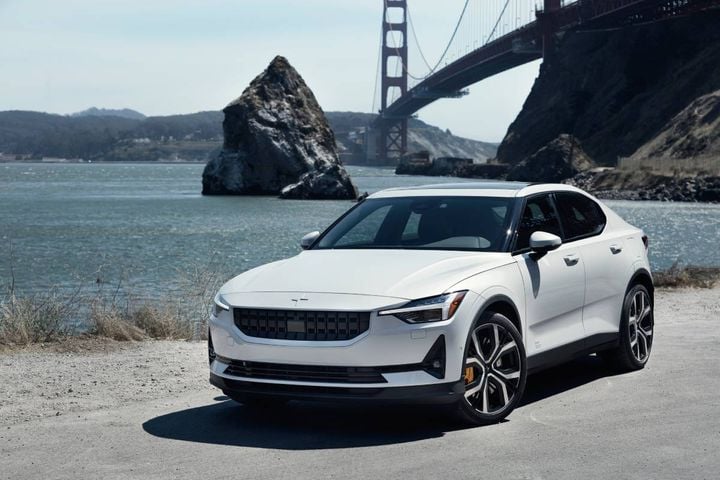
Hertz in 2022 had agreed to buy 65,000 Polestar vehicles in a five-year deal as part of its drive to convert 25% of its rental fleet to EVs by the end of 2024.
Photo: Polestar
Hertz has backed off plans to buy tens of thousands of Polestar electric vehilces this year, citing a collapse of resale values that are narrowing the rental car giant’s plans for EV adoption, according to a Feb. 5 report in the Financial Times.
Hertz in 2022 had agreed to buy 65,000 Polestar vehicles in a five-year deal as part of its drive to convert 25% of its rental fleet to EVs by the end of 2024.
Polestar’s CEO Thomas Ingenlath told the Financial Times that he had been contacted by Hertz’s CEO Stephen Scherr last autumn to ask whether he could pause their agreement to buy a certain number of electric vehicles throughout 2024.
The Polestar pause follows two major setbacks for Hertz and within the electric vehicle industry:
As electric vehicles face more driver and consumer resistance, Hertz plans to shed 20,000 EVs from its U.S. fleet and reinvest the sales proceeds back into internal combustion engine (ICE) vehicles, according to a Jan. 11 Form 8-K regulatory filing with Securities and Exchange Commission. The EVs, comprising a third of Hertz’s global EV fleet, will be sold off during 2024 and cover multiple makes and models.
Volvo Car said Feb. 1 it won’t provide further funding to Polestar, the electric-car maker it created with Volvo’s Chinese owner Geely—the latest EV retrenchment by the global auto industry, according to a report in the Wall Street Journal. The WSJ reported: “Volvo and Geely founded Polestar as a stand-alone EV maker, separate from Volvo’s substantial in-house effort to go electric. Through a special-purpose acquisition company (SPAC) merger, the two listed it on Nasdaq in 2022. Analysts have highlighted how Volvo’s 48% stake in Polestar has been a drag on its resources, with the company struggling with losses amid the slow consumer uptake of electric vehicles and the increasingly competitive market, tapping Volvo for around $1 billion in financing while the company works through a turnaround plan.”
